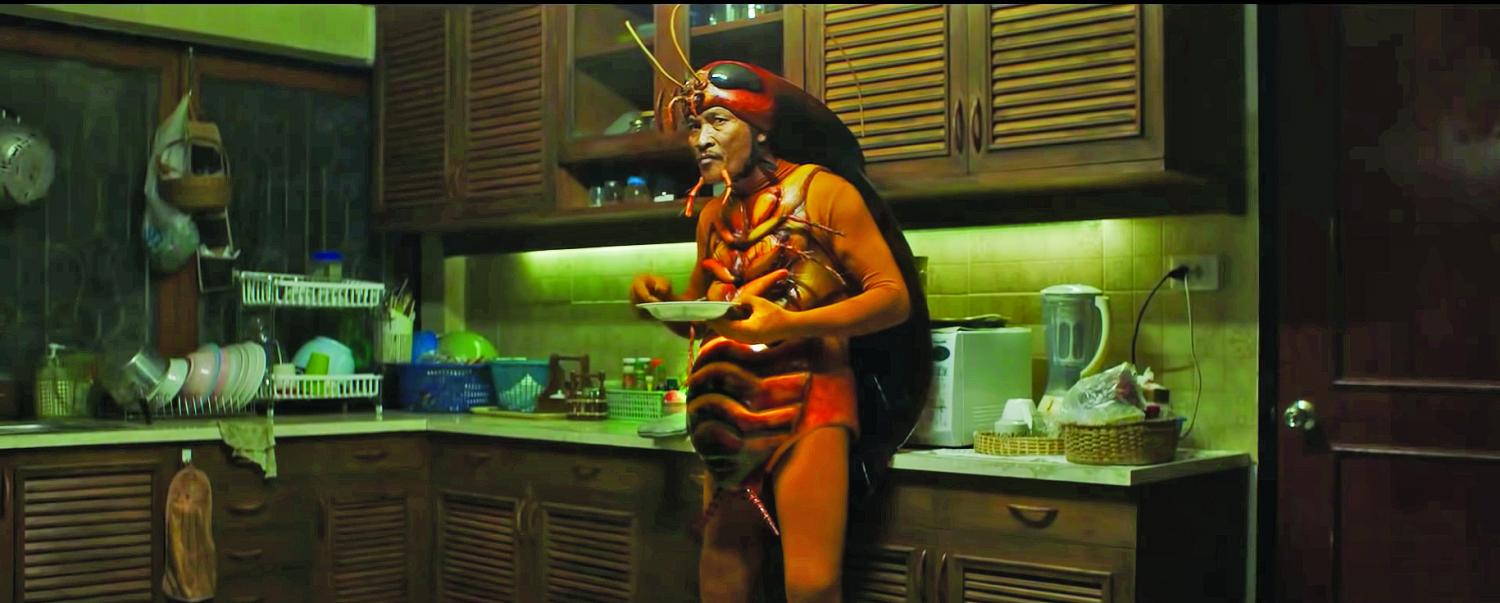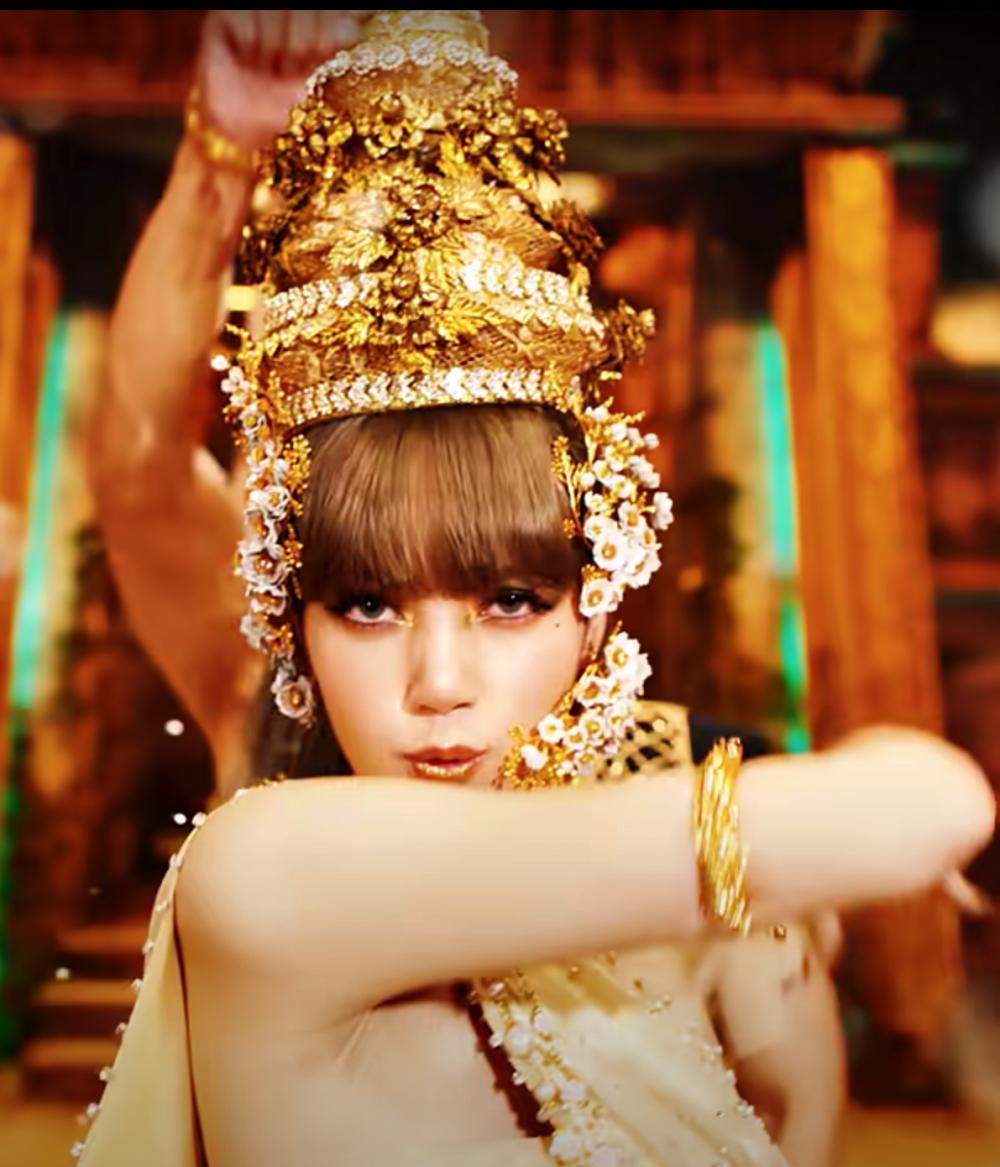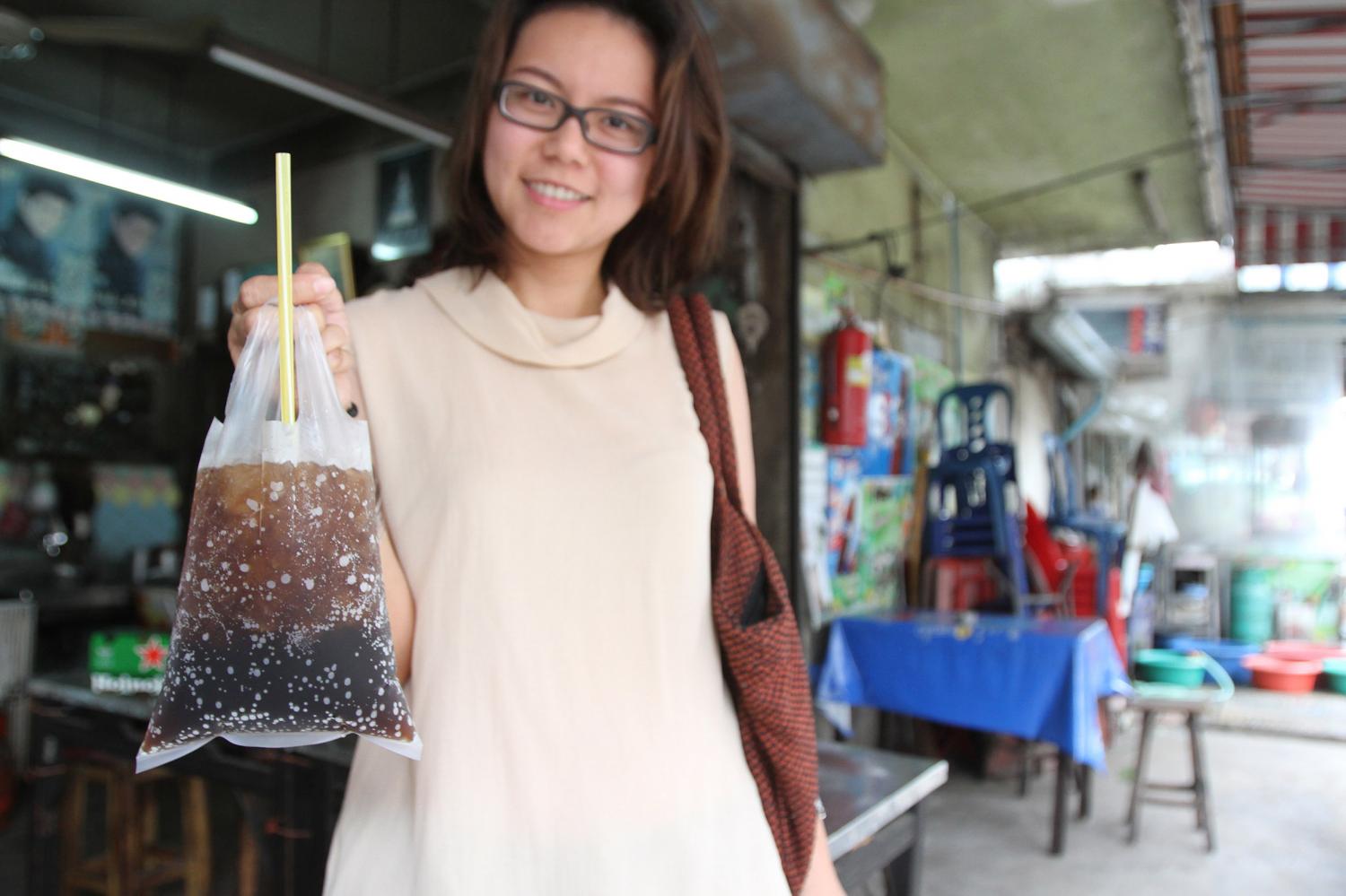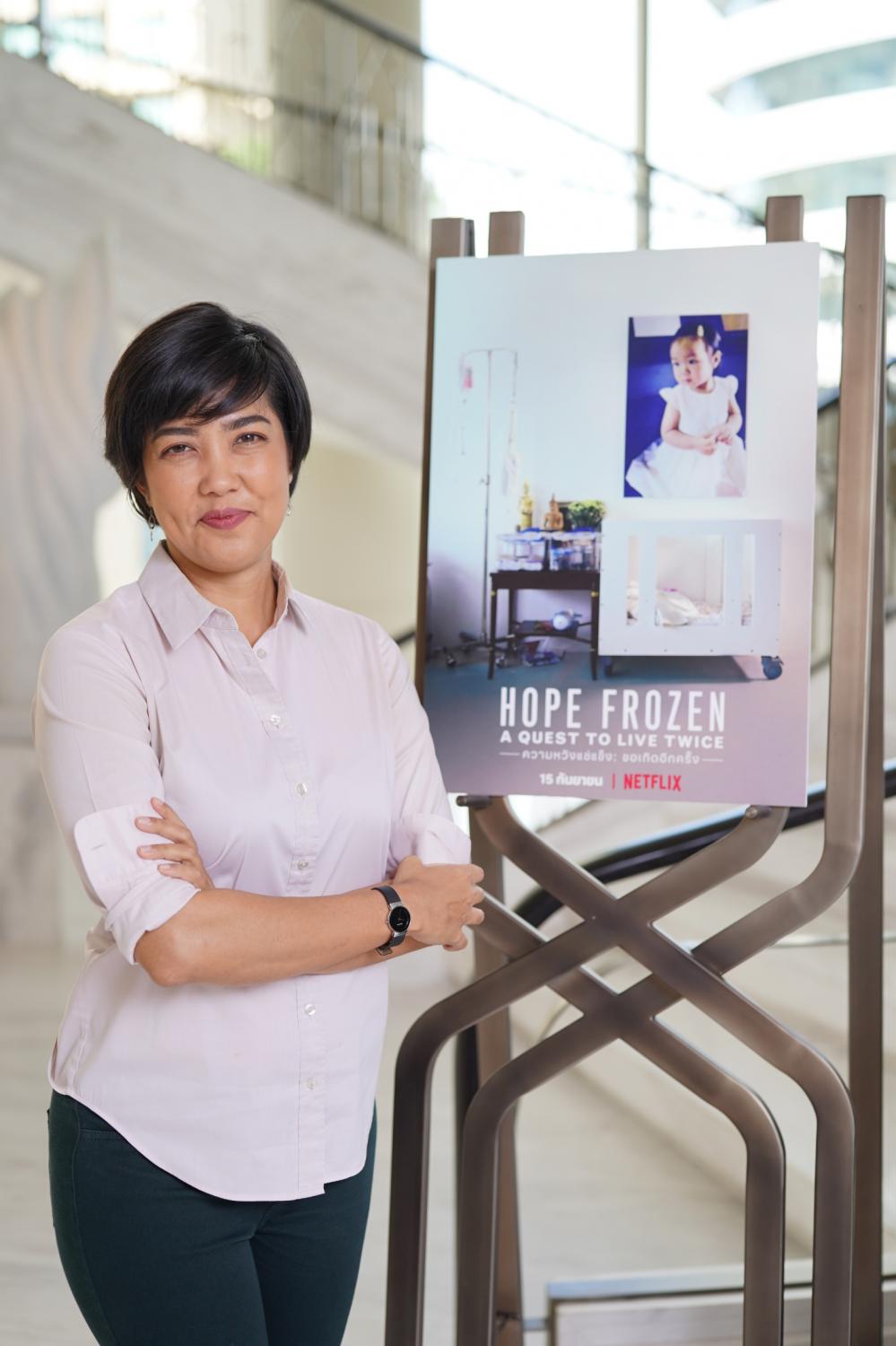K-pop stans and Blinks across the world were sent into a frenzy when Blackpink's Lisa released her solo debut album, Lalisa, a few weeks ago. The internet quickly fell in love with its addictive beat and rhythm, but the accompanying music video featured more than just tantalising visuals drenched in neon lights -- it featured the Buri Ram native in a traditional Thai headdress and the Prasat Hin Phanom Rung.

Unsurprisingly, everyone jumped on the cultural explosion and we mean everyone because even the government praised the Thai K-pop star. "The application of Thai culture to create soft power will help to increase economic value and spread the culture internationally," said a government spokesperson. This begged the question: What does Thailand actually have to create soft power? Guru breaks down a few things that help spread Thai culture around the world.
THAI CUISINE
The most successful cultural export from Thailand and a good demonstration of soft power, Thai cuisine has captured tastebuds globally. The choice of eating Thai has joined the ranks of popular choices like Chinese, Japanese and Italian, and that's a testament to just how delectable Thai cuisine is. Granted, the dishes people feast on in other parts of the world may have been slightly tweaked. It wouldn't be a surprise if the tom yum is less spicy than the ones served in the country. But those looking for the real thing would probably want to come to the country to give authentic Thai cuisine a try.


Somtum Der NYC. (Photos: Somtum Der NYC)


Farang London. (Photos: Farang London)
Notable examples
Search for "Thai restaurants near me" in a foreign country and you're bound to have a list of places you can go to. There are a few award-winning Thai restaurants outside of Thailand like Farang London, which has a Michelin Bib Gourmand. There are also restaurants that have made a name for themselves in the country and outside, like Somtum Der, which serves Isan goodness in Bangkok, New York and Tokyo. Thai food has made such an impact that even TV shows like How I Met Your Mother and The Big Bang Theory have referenced it.
Spreading the power
Thai cuisine continues to expand its influence internationally, but a great boost would be if the government supported the expansion of Thai restaurants overseas.
MOVIES & TV SHOWS
Hollywood has dominated the film and TV scene for decades but there's been a shift due to streaming services like Netflix. Content from everywhere is accessible to everyone, which means K-dramas can be watched by someone in North America or Thai films can be enjoyed by Europeans. Truth be told, Thai films and their directors were making a name for themselves even before streaming services were a thing. Thai horror flicks, in particular, ranging from bone-chillingly terrifying to straddling the line of scary and funny with the hybrid horror-comedy genre, are popular outside the Kingdom. Plus, there's no other country that came up with the idea of doing a movie that puts MTF transgenders in a spooky haunted house to create a comedic and horror effect. But it's not just horror. Thai martial arts films have proven to be a hit worldwide. And let's not forget the indie films genre, which has received recognition on the world stage.

Apichatpong Weerasethakul. (Photo: EPA)

Girl From Nowhere. (Photo: Netflix)

Tony Jaa. (Photo: imdb.com)
Notable examples
Director Apichatpong Weerasethakul has flown the Thai flag loud and proud with films like Loong Boonmee Raleuk Chat (Uncle Boonmee Who Can Recall His Past Lives), which won the prestigious Palme d'Or at the 2010 Cannes Film Festival. Classic films like Ong Bak (Ong-Bak: The Thai Warrior) and Tom Yum Goong (The Protector) with martial artist Tony Jaa proved that Jackie Chan wasn't the only Asian actor with insane stunts. It also proved that tuk-tuk chases are way cooler than regular car chases (take that, Fast franchise). There's also the innovative heist/caper-like movie Chalard Games Goeng (Bad Genius), which gained international acclaim because there's nothing like a movie about cheating at exams, right? We also can't forget Shutter, the early 2000s horror film that made it difficult for us to sleep at night, which also got its own Hollywood remake. Finally, there's also the Netflix series Girl From Nowhere that collects overseas fans.
Spreading the power
Creativity seems to be on an uptick in terms of films and TV with all the content Thailand is producing. But the real boost would be if the government supported the industry by providing resources that are lacking. Of course, freedom of expression is a discussion for another time, though in the past few years it seems that films and shows have gotten more liberal in their depictions compared to the years before.
HILARIOUS/EMOTIONAL COMMERCIALS
Thai commercials are part of this bandwagon, too and have their share of fanfare. While cultural humour doesn't necessarily translate across borders, these commercials have proven that Thai humour is something people outside Thailand also enjoy. In fact, the humour and regular surrealness of Thai commercials have made such an impact outside the country that even the Philippines adopted the same unreal comedic approach for a soda ad. But it's not just humour. Heartstrings have been pulled and many tears have been shed over Thai commercials with many people wondering just what they're watching in the first few seconds. Once they're a blubbering mess, they realise that they've actually been watching a life insurance ad. Hey, if you can get people to show emotion in a few minutes, that's already an incredible feat!

(Photo: Top Charoen Optical)

(Photo: Chaindrite)
Notable examples
One commercial doing the rounds on my FB feed (or at least it's what Mark Zuckerberg keeps targetting me with) is the Top Charoen Optical ad, which involves a group of incompetent robbers who rob a, uh, "bank". No spoiler, I'll leave it at that. Another one that's definitely surreal is the numerous commercials for Chaindrite bug spray. As for commercials that give you a good cry, look no further than the Thai Life Insurance YouTube channel where they have all their heart-warming/heart-wrenching commercials. Take a glimpse at the comment section and you'll see how many from all over the world are also watching and sobbing along. A recent comment reads, "Y'all Thai insurance companies need to stop. You've made the whole Youtube community cry." They're not wrong.
Spreading the power
The only thing to do is to keep making them. For years, Thailand has been making TV ads that make people ROFLMAO or get on the ground in a fetal position while sobbing uncontrollably. So just keep making people laugh or give all the feels and let the internet do its thing -- make it go viral.
CELEBRITIES & POP CULTURE ICONS
It would be a mistake not to include this when the reason for this article is a celebrity who's catapulted Thai culture into public consciousness. It's a no-brainer that celebrities would be the greatest ambassadors of Thai culture and influence. Notable Thai stars have been on the rise in the last few years thanks to TV shows and movies being watched internationally and y'know, certain stars being part of a girl group that's a global hit.

Lalisa Manoban. (Photo: Youtube)

Chicha Amatayakul. (Photo: IG@kittychicha)

Davika Hoorne. (Photo: IG@davikah)
Notable celebrities
Chicha "Kitty" Amatayakul has become a well-known actress in more recent times thanks to her portrayal of Nanno in Girl From Nowhere. Another famous actress that's made the international rounds is the Thai-Belgian Davika Hoorne, and then of course there's Aokbab Chuengcharoensukying, who portrayed the genius that spearheaded the cheating scheme in Chalard Games Goeng aka Bad Genius. Last but not the least, let us not forget Lalisa "Lisa" Manoban. Thanks to her MV, the traditional headgear we usually see in Thai dances has now become a pop icon. Buri Ram's deep-fried meatball sales are also skyrocketing since Lisa said it's one of the first things she would buy if she went back to her home province.
Spreading the power
Certain celebrities have already been tapped as endorsers for brands overseas and there is no stopping this. Another great idea is gathering a slew of famous people and have them become the face of a tourism campaign or something similar to when British Airways had a number of British stars do their in-flight safety video. I'm not entirely sure whether Nadech Kugimiya lecturing young women on how to put on an airplane emergency oxygen mask would work because they'd probably pass out from swooning.
THE THAI BRAND OF INGENUITY
Aside from the cultural exports that easily come to mind, there are others that the world could benefit from, especially Thai lifehacks. While everyone has a complicated or convoluted way of solving things, Thais have easy and hassle-free solutions. The world could learn a thing or two when they see Thai ingenuity.

(Photo: Pornprom Satrabhaya)
Notable examples
When people around the world think of take-out, it's usually in a plastic bag with food inside paper or styrofoam containers. White Chinese takeaway boxes may also spring to mind. But in Thailand, boxes are overrated. All we need is a plastic bag to put food in and tie it in a mind-boggling fashion with a rubber band, so that it's as hard to untangle as it is to infiltrate the CIA base at Langley. Takeaways aren't just strictly for food alone. Learn to sip from a straw and walk with a soda or a drink emptied straight into a plastic bag. Of course, this isn't as easy as it sounds. You also have to balance holding the bag that at times, can only be held by a rubber band!
Spreading the power
Along with the Thai restaurants around the world, diners should also get the full experience with takeout in plastic bags tied with rubber bands. Yes, it's to promote Thai culture, but I also just want to see videos of people struggling to untangle the rubber band. Hey, we can barely untangle them and we live here! Of course, there's the eco-friendliness issue because of the plastic bags. Bio-degradable plastic with eco-friendly rubber bands, perhaps? Eco-friendly rubber bands exist, right?
SOFT TALK
We speak to a few in the creative industry about their take on soft power and what Thailand can do to expand its cultural influence.
Kong Rithdee
Deputy Director, Thai Film Archive
Soft power has become a buzzword that every politician flaunts in order to lend themselves a sexy touch, like they know what's going on in the world, though I doubt how many of them really understand what it is or what we need in order to wield the kind of power South Korea or Japan has. To further our 'soft power'? The government has to change the mentality. No conservative country can thrive creatively -- none! Then it has to stop thinking that success can be bought; it has to be built from scratch over several years, patiently, industriously, sincerely. It needs to groom talents, not just stars like Lisa, but creative workers, from writers, musicians, artists and also technicians and crew members. And most importantly, we need creative freedom. Censorship, reactionary politics and cultural watchdogs have no place in a country that tries to promote soft power.

Pailin Wedel
Director and documentary filmmaker
There are two things that are unclear at the moment. First, who decides what kind of soft power Thailand actually wants? Does Thailand actually want cultural influence over other countries? Is that what they mean by soft power? The other question is, how much money is the government really going to put into this effort. How influential the country is -- even in soft power -- is directly related to the investment the country puts into it. For example, the reason Korean soap operas became such huge hits is because they gave it away at a very low price. They had this idea of soft power in mind. They wanted to provoke awareness. At the moment, no one's deciding what is Korean enough to use as soft power. In Thailand, there is a conversation to be had about what is it that we want to promote. Thai culture isn't something one person or a government can make. In order to really truly promote influence, there needs to be a freedom of creativity and that freedom needs to be promoted. The problem isn't that Thailand doesn't have the talent. The problem is that the creators don't have the resources and the freedom. The people who are winning awards like the Thai commercials and Thai films are really special and are few because they're able to create something wonderful in spite of all the restrictions and lack of resources. If we could actually have the resources and freedom, can you imagine how much influence Thailand could have?

Bo Songvisava
Chef
Thai food that has been used as soft power by the Tourism Authority of Thailand or the Kitchen Of The World campaign has been, on the cultural side, really bastardised. They haven't gotten to the root and core of Thai food yet and we have so much more culinary heritage, which is not Westernised or compromised by other cultures. The way the Thai government tries to standardise recipes doesn't work at all. I see how they try to standardise recipes, procedures of eating or eating etiquettes. They hang on to Western-style concepts like fine dining, but we don't have to serve courses in Thai food. We have the etiquette of eating everything together. Also, if you want to do Thai food really well abroad, the government probably has to change the regulations on what can be exported. Factory food is getting exported but artisan products can't because of the law. Simple things like that will lift the level of Thai cuisine internationally.
